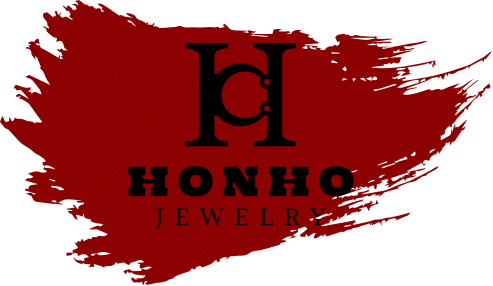Top 10 Jewelry Suppliers In China: Ultimate Guide to Trusted Brands

Key Takeaways
- Jewelry suppliers serve as a vital link between manufacturers and retailers, offering a wide range of products from fine metals to fashion accessories and ensuring inventory flows smoothly.
- Knowing the difference between manufacturers and wholesalers will give businesses the knowledge needed to select the best suppliers. Wholesalers usually provide increased selection and savings and provide best value to retailers.
- Evaluating potential suppliers requires checking for ethical sourcing, strong quality control measures, technological capabilities, and reliable supply chains to ensure product quality and business stability.
- Working with wholesale suppliers can provide huge monetary returns! You’ll be able to take advantage of lower pricing, a larger variety of products and ways to grow your business more quickly.
- Building strong supplier relationships depends on open communication, clear expectations, and a commitment to fair practices, which can support long-term mutual success.
- Staying aware of current trends, both in the US and globally, and choosing suppliers that adapt quickly will help businesses maintain competitive product offerings and meet evolving consumer preferences.
Jewelry suppliers are businesses or people that offer retailers, artisans, and creators fundamental pieces of jewelry. They supply everything from the raw components to finished goods needed to sell or produce beautiful jewelry.
The majority of U.S.-based jewelry suppliers also deal in gold, silver, and gemstones that adhere to domestic sourcing regulations and quality standards. They typically do this in creative hubs such as New York and Los Angeles.
These areas have deep connections to the jewelry industry and offer access to large consumer markets. In addition, most of these suppliers offer bulk pricing and help expedite shipping to fulfill rapid retail demand.
Others are committed to using sustainable metals or fair-trade stones. Choosing the ideal jewelry supplier allows brands to maintain a consistent inventory level, cater to evolving style trends, and establish credibility with consumers.
Coming up, the top 5 traits and 9 tips for picking the right jewelry supplier in America.
What Are Jewelry Suppliers?
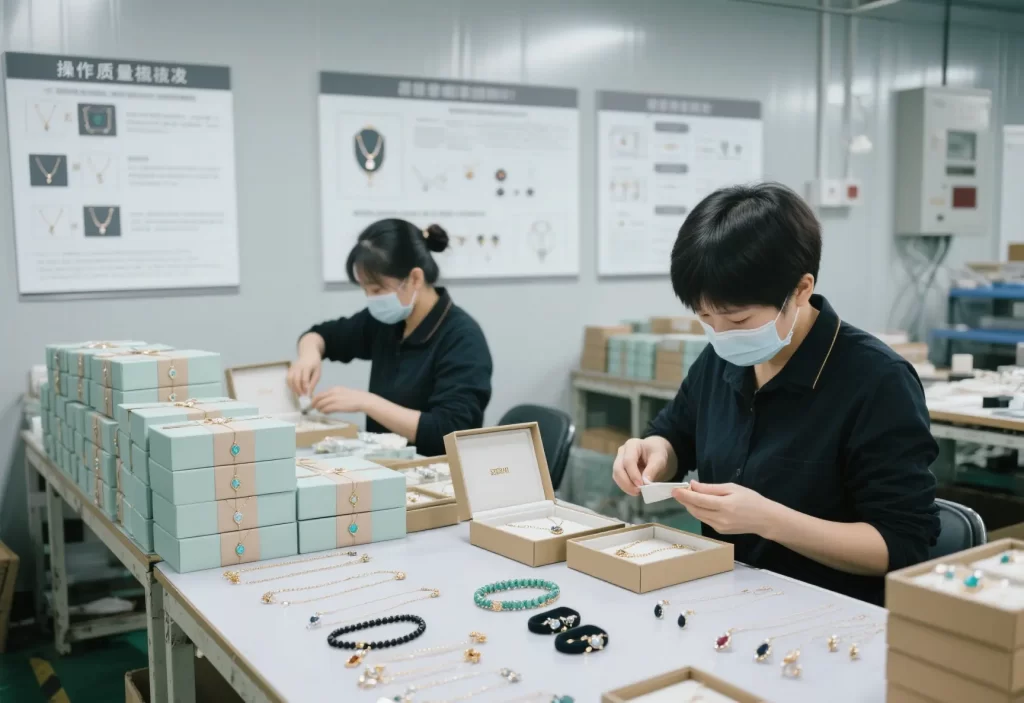
Jewelry suppliers are the backbone of the industry, acting as vital jewelry wholesalers who assist retailers in acquiring the goods they sell, whether it be rings, necklaces, or other gems. These suppliers can be manufacturers who create the pieces, wholesalers who buy in bulk and sell to shops, or distributors who manage the middle steps. They have everything figured out, all the way down to their worldwide lines of wholesale fashion jewelry ready to ship.
Most suppliers deal with gemstones, metals, and settings, and even accessories like boxes or bags. Some specialize in gold or diamonds, while others carry more fashion-forward lines for larger markets, including quality jewelry options like sterling silver jewelry and costume jewelry.
Most suppliers deal with gemstones, metals, settings and such, and even accessories like boxes or bags. Some specialize in gold or diamonds, others carry more fashion-forward lines for larger markets.
They can then ship the products directly to customers or utilize third-party logistics centers. This configuration can address various issues, from long transit times to subpar customer service, ensuring a smooth operation for jewelry demands.
They can then ship the products direct-to-customer, or utilize third-party logistics centers. This configuration can address a lot of issues, from long transit times to subpar customer service.
With the rise of online platforms like Shopify, the jewelry wholesale market has expanded significantly, allowing for a robust jewelry business plan that meets the needs of both suppliers and retailers alike.
Their Core Business Role
Jewelry suppliers control the pipeline of goods from artists to retailers.
Jewelry suppliers’ primary responsibility is to keep their own shelves stocked and orders filled, so that retailers never (or rarely) run out. Strong supplier relationships result in better pricing, quicker replenishment, and a wider selection for retailers.
In addition to all of that, suppliers assist with inventory management, supply chain visibility, trend tracking, product or shipment inquiries, and more.
Manufacturers vs. Wholesalers Explained
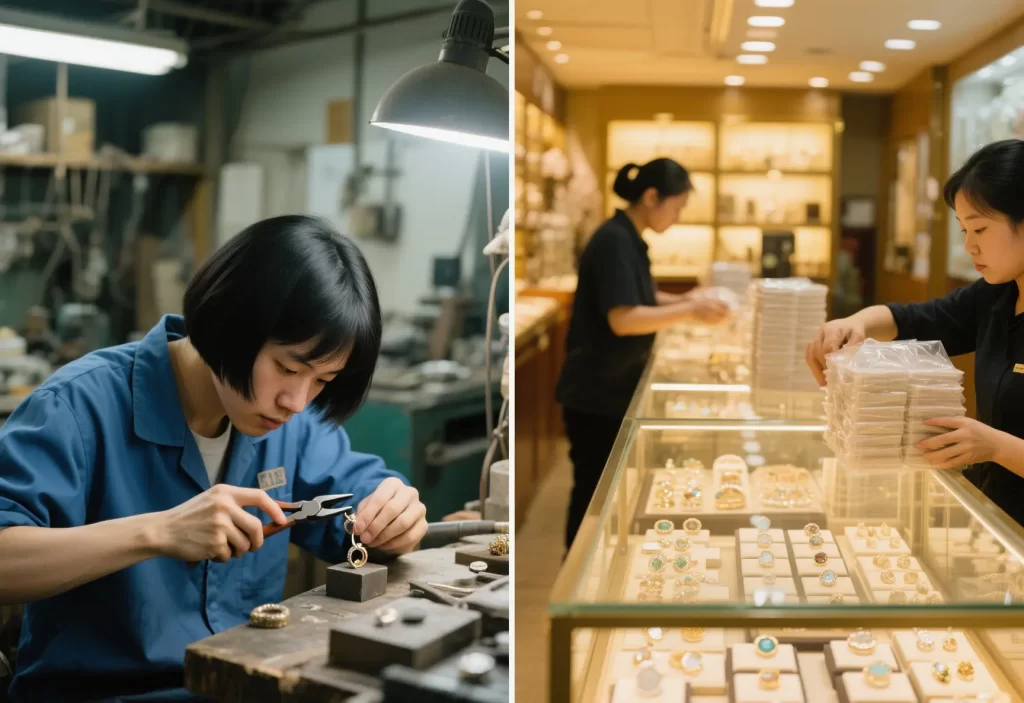
Manufacturers produce finished jewelry products. Jewelry wholesalers manufacture or purchase jewelry in bulk, then sell wholesale to the retailers.
This is because when you source from wholesalers, you tend to get more variety and quicker service, as they carry a multitude of lines. Manufacturers want custom work, but typically with higher minimums and longer lead times.
Both roles support the chain, but wholesalers keep retailers on their toes.
Spotting Niche vs. Broad Suppliers
Niche suppliers produce a limited range of styles, such as vintage rings or sustainable gems. Broad suppliers have a wide variety of types, suited for stores that desire a large selection.
Choosing between them requires knowledge of your store—niche works for independent brands, broad brands fit bigger stores or those that carry multiple collections.
Why Choose Wholesale Jewelry Suppliers?
Wholesale jewelry suppliers offer tangible, applicable value for those who aspire to operate and expand a successful jewelry enterprise. These suppliers offer you the ability to save money with ease. This means they can better satisfy a variety of customer needs and help your store grow consistently over time.
Here’s how these benefits manifest themselves for established retailers and budding entrepreneurs.
Big Savings: Wholesale Benefits
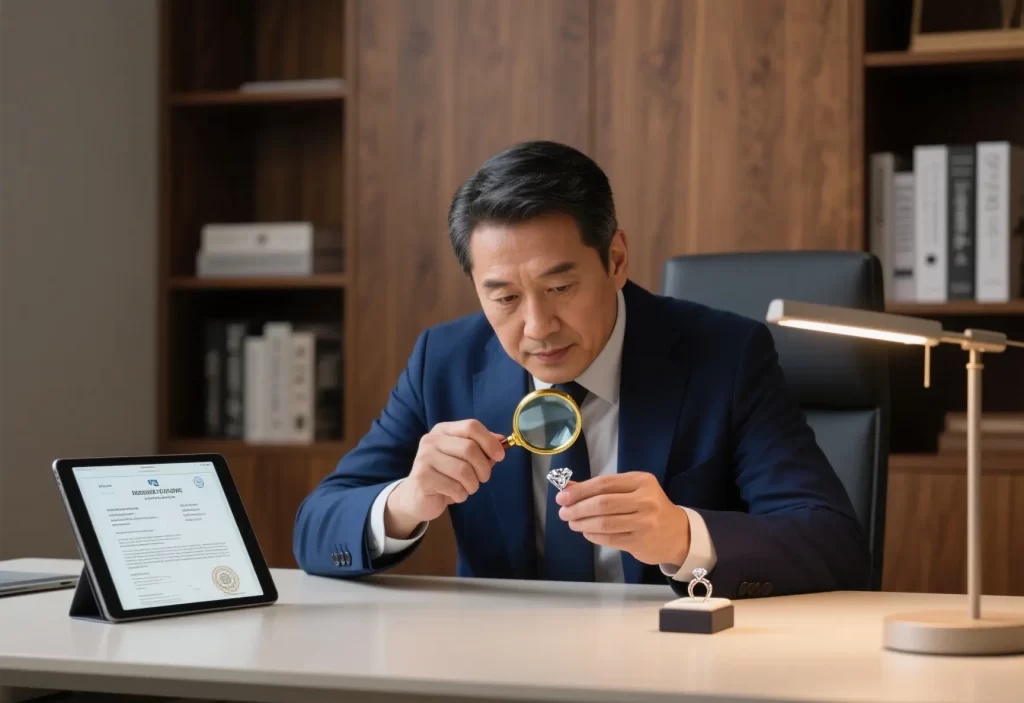
Purchasing wholesale jewelry in bulk nearly always reduces the cost per piece significantly. This allows businesses to retain a larger percentage of their profits or provide more competitive prices to their clients.
For example, getting a set of earrings or bracelets from a wholesale supplier often costs much less than buying the same pieces from a retail store. As time goes on, this cost difference amounts—particularly for stores who require consistent inventory.
Many wholesalers provide bulk-buying discounts too, which can cut a business’s costs even further. Establishing a long-term relationship with a supplier can entitle you to more favorable payment terms.
Beyond that, it offers advance warning of sales so stores have a significant advantage in an increasingly competitive environment.
More Choices: Product Variety
Wholesale jewelry suppliers carry every type of jewelry—from classic gold necklaces to the hottest new sustainable styles. This variety allows retailers to cater to customers with a wide array of preferences and price points.
Wholesale catalogs usually have a wide variety of findings, beads, art charms, and finished jewelry, so it’s easy for businesses to keep their selection fresh and new. Being able to get new products on a regular basis allows stores to better offer what’s trending seasonally while not overextending their budgets.
Grow Faster: Business Scaling
Quality wholesale suppliers help you simplify adding new products. You can easily experiment with new styles and trends, and react to what’s moving the quickest.
Stores are able to expand their product line or specialize in popular styles, allowing them to scale their business and attract new customers. A predictable supply of eventual jewelry products also prevents stock shortages, allowing you to take on larger orders or scale into different geographic areas.
Finding Your Perfect Jewelry Supplier

Finding the perfect jewelry supplier is an artful balance of quality, ethics, logistics, and tech-savvy. The process requires rigorous guidelines, attention to detail, and a deep understanding of what each supplier can bring to the table.
Here’s a step-by-step list to spot good fits: check supplier reputation online, look for industry certifications, ask about sourcing, review sample products, and look at their logistics. Be sure to verify that their capabilities align with your business objectives, such as accommodating custom orders or providing quick turnaround times.
1. Identifying Top China Wholesalers
When searching for reliable China wholesalers, be sure to check for transparent company information, legitimate customer testimonials, and evidence of previous work. Reputable suppliers will always provide valid ISO 9001 or BSCI certifications and evidence of a transparent supply chain.
Working with local suppliers can result in quicker shipping times and easier communication. We advise you to always request and check business licenses, trade references, and professional websites to confirm credentials.
2. Checking Ethical Source Claims
Inquire about where and how suppliers source their gemstones and precious metals. Look for compliance with fair trade guidelines or ethical badges such as RJC or BSCI.
As ethical source claims continue to rise among buyers, these checks are essential. Certifications indicate that these companies take accountability when it comes to sourcing.
3. Confirming Quality Control Steps
Reputable suppliers commonly perform defect testing and quality checks and can provide you with a detailed record of their process. Seek out suppliers who can demonstrate results from independent tests.
Customers become loyal based on high product quality and trust.
4. Seeing Their Tech Savviness
Suppliers that offer online ordering, tracking capabilities, and quick customer support make your life easier. Tech makes ordering easy and builds strong partnerships.
Most of our best suppliers these days operate on online quote systems with real-time production progress updates.
5. Gauging Supply Chain Strength
A solid supply chain will be evident in consistent delivery times, transparent return policies, and ample inventory. Strong logistics = Less downtime and more foresight.
These considerations are what help to populate shelves and keep customers impressed.
6. Exploring Custom Design Options
Suppliers that provide custom design capabilities enable jewelers to differentiate themselves. Collaborating on designs leads to distinctive collections and devoted customers.
Open communication and example pieces make the custom process easy.
Must-Have Supplier Qualities
Selecting jewelry suppliers is so much more than price points and look books. Supplier qualities—what a supplier has to offer—have a direct impact on the everyday operations and future development of any jewelry company. Below are the qualities that matter most:
- Spotless reliability and trust
- Clear sourcing and strong ethics
- Flexibility and quick response to trends
- Real green practices, not just claims
- Honest, open communication
- Fair labor proof
- Consistent, high-quality goods
- Clean and fast logistics
- Multiple sourcing options
- Good fit with your business values
Highly qualified suppliers enhance a retailer’s reputation, save time and money by preventing expensive surprises—such as mistakenly adding a zero to a purchase order—and create a strong collaborative connection for decades.
Real Commitment to Green Practices
There’s a high demand for eco-friendly jewelry. Responsible suppliers take demonstrable actions such as using recycled metals, low-impact packaging or solar-powered workshops. These type of moves garner respect and go a long way to enhancing overall brand trust.
Consider, for instance, a supplier that recycles gold or sources fair-mined stones. Green practices aren’t just a fad—they’re a foundation for strong reputations.
Clear Sourcing: Metals & Gems
Suppliers must have traceability. Suppliers need to be transparent with the origin of their metals & gems. Transparent sourcing requires clear documentation and accessible records.
This transparency goes a long way toward resolving issues with conflict gems or hazardous mining. Retailers win too, because they can start telling this story to consumers and increase consumer trust and product value.
Quick to Adapt to Trends
The jewelry industry is a pretty quick-moving space. So, suppliers should be quick to identify and adapt to trends, such as the rise of lab-grown diamonds or emerging new styles of chains.
Quick change allows retailers to respond to market demand and be first to market. Look for suppliers that introduce new products regularly or publish trend reports.
Proof of Fair Labor
Consider requiring documentation such as third-party audits, certificates or letters of guarantee attesting to labor practices. Fair labor is important to today’s consumers.
By selecting suppliers operating safe, fair workplaces, retailers can avoid brand damage and gain socially conscious shoppers.
China Jewelry Scene: Supplier Angles
China’s rapidly evolving jewelry supply market continues to drive much of the global trade, attracting wide interest for its size and pace. Other major hubs such as Guangdong, Zhejiang, and Guangxi contain a large number of manufacturers. These regions produce a wide variety of ear studs, finger rings, neck ornaments, and armlets.
With so many suppliers providing custom work and OEM services, it’s simple for buyers to keep pace with trends and local tastes. A typical supplier will have a minimum order quantity, often as little as a few pieces but typically in the hundreds. Pricing varies widely depending on material, design, and quality.
For example, regular rhinestones may sell for as little as three cents per stone. Most companies claim more than 10 years of export experience. Production time is extremely fast, with orders regularly completed in as little as fifteen days!
|
Region |
Product Range |
MOQ |
Lead Time |
Key Features |
|---|---|---|---|---|
|
East Coast US |
Fine gold, silver, diamonds |
10-20 pieces |
2-4 weeks |
High-end, custom designs |
|
Midwest US |
Silver, semi-precious gems |
5-10 pieces |
3-5 weeks |
Craftsmanship, indie brands |
|
West Coast US |
Trendy, mixed materials |
20-100 pieces |
1-2 weeks |
Fast fashion, bold styles |
Hot American Jewelry Styles Now

Chunky chains, mixed metals, and pearl accents are some of the hottest trends stateside. These styles inform what suppliers bring into stock. When preferences change, suppliers’ product lines change as well.
For retailers, keeping their inventory in step with the latest trends leads to higher sales and less unsold stock.
Understanding China Jewelry Rules
Chinese jewelry suppliers are not the bad guys. These include product composition, packaging, marking and labeling requirements, and export documentation. That means that retailers need to ensure that suppliers are in compliance with local and global regulations.
Most big suppliers help with paperwork, but buyers must check for compliance—especially with customs and safety laws.
Local China Artisan Suppliers Rising
These small, local artisan suppliers are increasing in China. These local China artisans deliver the specialty items, creative designs, and lower MOQs.
These artisans usually incorporate locally sourced pearls or stones. Sourcing from them supports more local jobs and keeps our supply chains more agile.
Handling Wild Material Price Swings
Gold, silver, and gemstones are some of the most dynamic materials in terms of price. Savvy purchasers negotiate for adaptable conditions or incorporate base metals to maintain cost immersion.
It’s easier to plan a way from downturn to upswing with many suppliers offering contracts that help you adjust for material price swings.
Material Preferences Among Local Buyers
Local buyers are passionate about the materials used by jewelry suppliers and want to know what their pieces are made of. Gold, particularly 14k and 18k yellow or white gold, is the top choice due to its timeless look and durability for everyday wear.
Silver is also popular for its affordability and polished appearance, but buyers expect it to be high quality to avoid skin irritation. There’s a growing trend for recycled metals and ethically sourced stones, especially among younger buyers who care about the environmental and social impact of mining.
Local suppliers are responding by providing documentation to build trust. While diamonds remain popular, many customers are open to alternative stones like sapphires and emeralds, often choosing birthstones or meaningful gems.
They value clarity and cut but are cautious about treated or synthetic options. In short, local buyers seek meaningful sourcing, quality metals, and significant stones, prioritizing durability over flash.
Building Strong Supplier Partnerships

Constructive, mutually beneficial relationships with jewelry suppliers are the foundation of any successful, sustainable, high-quality jewelry business. They ensure that both sides succeed and receive equitable opportunities. Open lines of communication, trust, and a shared vision for the future create the foundation for long-term success.
Here are some best practices to guide these partnerships:
- Be open and honest in all talks
- Set clear terms before work starts
- Check in often and share updates
- Respect time zones and culture
- Keep a backup supplier or two
- Write down agreements in clear words
- Handle disputes with a neutral third party if needed
- Learn about their markets and trends
Open Talk and Building Trust
Trust is a key ingredient in any successful partnership. Communicate product requirements, timeframes and any modifications in advance. Use email, calls, or video meetings to fill in the blanks. This is even more crucial when partners are remote or operating in different time zones!
Provide constructive criticism or advice. When problems are inevitable, focus on resolution together. Trust allows organizations on both sides to more quickly repair missteps and work more effectively side-by-side.
Setting Clear Mutual Expectations
Put in writing what you both expect, from delivery times to product specifications. Having clear rules in place prevents these types of fights from even happening and ensures that no player is ever made to feel unwanted.
Create supplier agreements that clearly outline expectations such as price, delivery, and what to do in the event of an order mistake. In this manner, both parties are aware of their expectations.
Growing Your Businesses Together
Collaborate to advance mutual objectives. Consider co-op advertising or collaborative sales events. When you create plans collaboratively, everybody benefits.
If you’re a supplier, these steps will make you more competitive and help you get noticed by more buyers.
Dealing With Price Changes Fairly

When price changes occur, communicate early and often and provide justification. Seek win-win agreements that benefit both parties.
Respectful negotiations maintain the relationship and ensure all parties are treated justly.
Conclusion
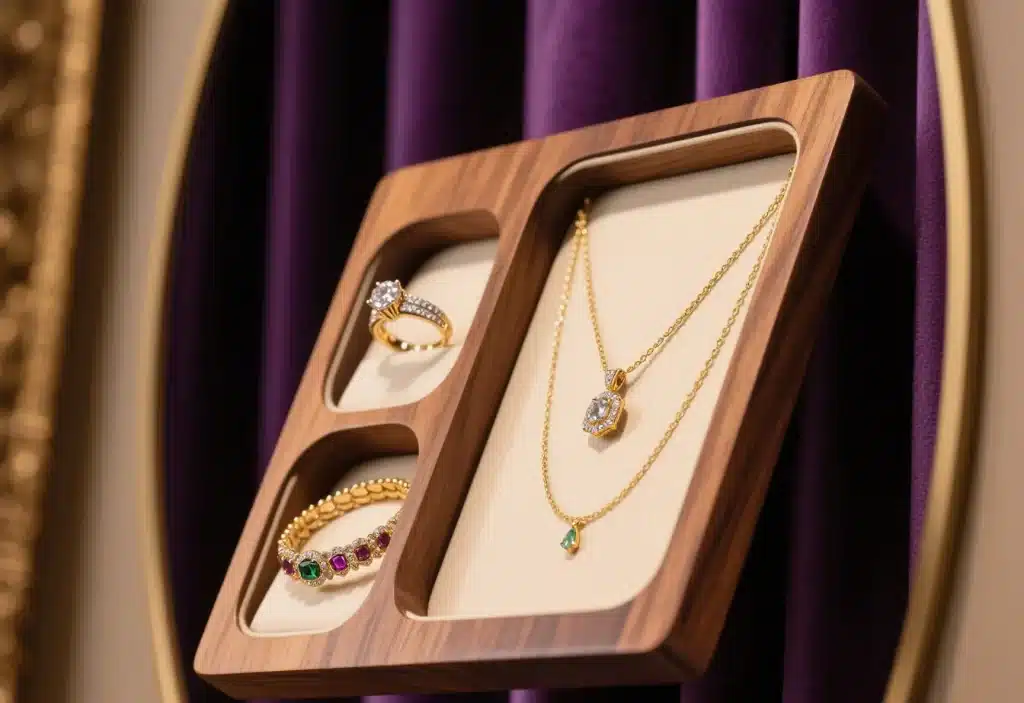
Jewelry suppliers have an important role in the supply chain as well, from independent businesses to national companies with enormous reach throughout the U.S. Choosing the best one involves more than comparing price.
Things like straightforward communication, quick shipping times, and consistent quality should be taken into account. Whatever you choose, make sure it aligns with the aesthetic of your shop and the preferences of your buyers.
Whether they’re a local or global supplier, the best ones are those that deliver on their promises and support your growth. Some stores have had good luck with China-based suppliers, while others prefer to work with U.S. Teams for quicker turnaround.
Real growth doesn’t come from these flimsy connections; it comes from strong ties. Communicate, over-communicate, and then keep the business mutually beneficial. Looking to learn more or trade supplier tales? Come to our next jewelry-specific online forum or just drop us a line—together, we can all go home wearing the jewelry crown.
Frequently Asked Questions
What is a jewelry supplier?
A jewelry supplier typically sells wholesale jewelry in large quantities to retailers or jewelry designers. They may design, produce, and sell quality jewelry directly to consumers or procure and distribute sterling silver jewelry for resale.
Why buy from wholesale jewelry suppliers?
Why buy from wholesale jewelry suppliers? Lower prices, bulk discounts, and a wide selection of quality jewelry, including sterling silver and fashion jewelry, are just a few reasons.
How do I find reliable jewelry suppliers?
Choose suppliers of wholesale jewelry that have positive feedback from previous clients, clear policies, and well-defined quality control measures. Trade shows, online directories, and referrals from other industry professionals are excellent places to start.
What makes a good jewelry supplier?
What makes a good jewelry wholesaler? A great wholesale jewelry supplier will provide quality assurance, dependability, competitive pricing, and proactive communication, fostering confidence and lasting collaborations.
Are Chinese jewelry suppliers trustworthy?
Not all Chinese suppliers of wholesale jewelry are crooks and shysters. Due diligence is important; always validate their certifications, review feedback, and ask for samples before placing bulk orders.
What documents should I request from a supplier?
Request copies of business licenses, quality control certificates, and detailed product specifications for wholesale jewelry. These documents provide proof of authenticity and protect you from counterfeit or low-quality silver jewelry.
How can I build a long-term relationship with my supplier?
These include open communication, timely payment, and constructive feedback. Building a relationship based on trust and respect with your wholesale jewelry vendors will lead to better prices and consistently reliable service in the long run.
share this recipe:
Still hungry? Here’s more
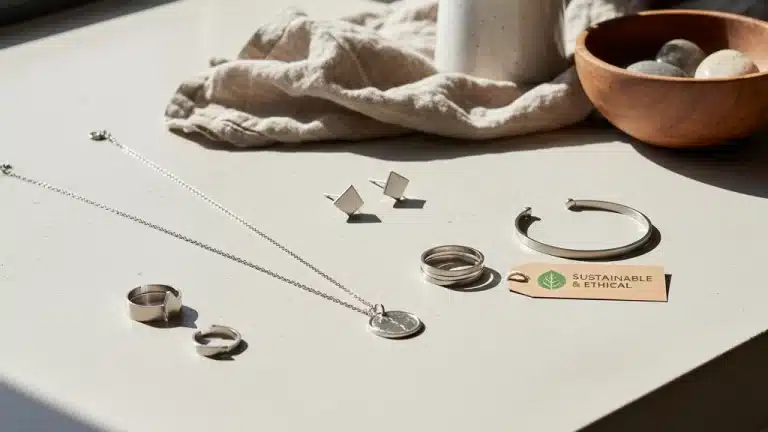
Top 50 Jewelry Brands Worth to Buy 2026: The Definitive Investment & Style Encyclopedia
The global jewelry market in 2026 is a fascinating landscape where centuries-old heritage meets cutting-edge
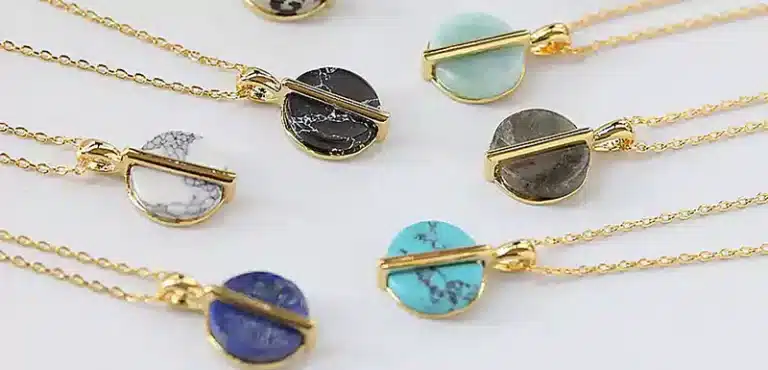
Why Brass Jewelry Wholesale Fits Fashion Brands: The Strategic Guide for 2026
In the rapidly evolving landscape of the global fashion industry, the demand for affordable luxury
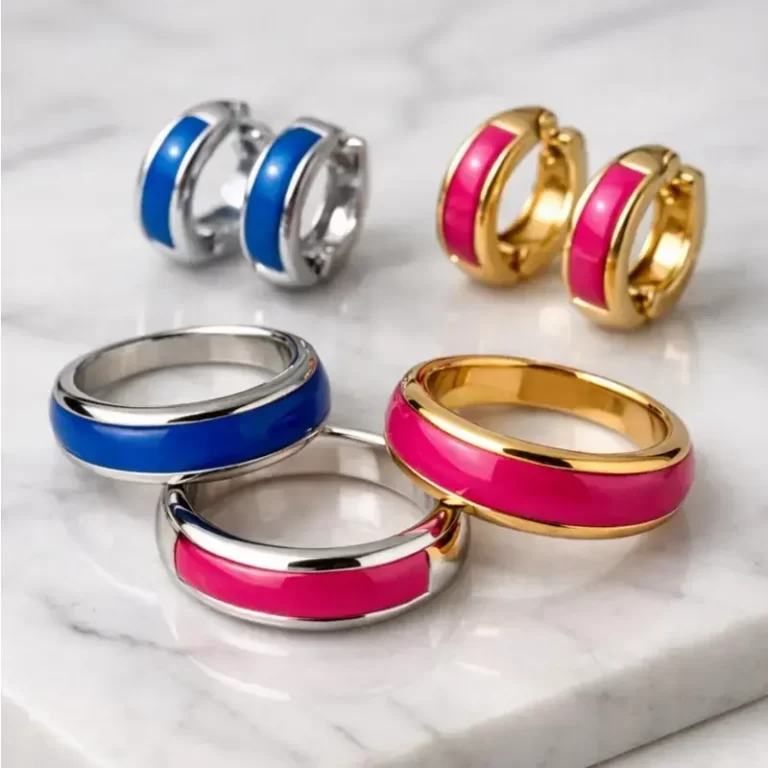
Enamel Jewelry Wholesale: Adding Color to Your Brand’s Collections
In the ever-evolving world of fashion, color has become the ultimate tool for self-expression. For
Ready to Design Your Own Jewelry?
Have an idea in mind or need help shaping it? From sketches to finished pieces, our custom jewelry team will work with you step-by-step to bring your vision to life.
